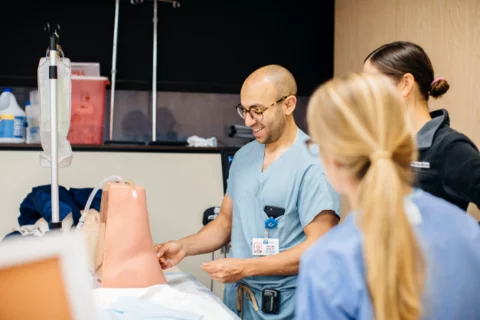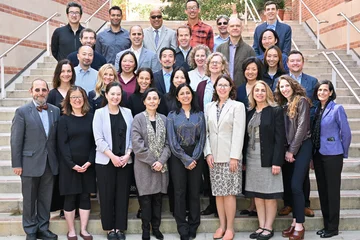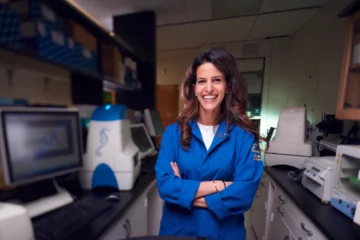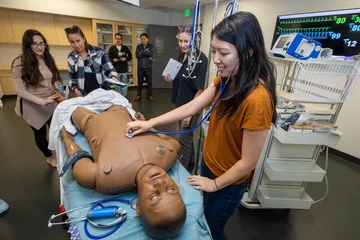A Day in the Life of Dr. David Boland, Physical Therapist and Army Transportation Officer
Many people are familiar with the ROTC program and GI Bill — scholarships that help future or former soldiers pay for undergraduate degrees. But students interested in medicine and the military can also pursue graduate degrees while serving.
For example, David Boland has been in the Army for 15 years, during which time he has received a PhD in physical therapy. He is now pursuing a second PhD from UCLA's Molecular, Cellular and Integrative Physiology (MCIP) department — part of the Graduate Programs in Bioscience — under the co-mentorship of Drs. Alan Garfinkel, PhD, and Chris Cooper, MD, faculty members in the David Geffen School of Medicine at UCLA.
Here, Dr. Boland discusses how the military has funded his education, and how he balances his commitments to school and service.
Family Tradition and Free Tuition
Dr. Boland comes from a military family. When he started college, he joined the ROTC. "The idea of serving the country was definitely something I respected," he says. "It's also a great way to pay for school."
He finished his undergraduate studies in 2001 and was in officer basic training when the events of 9/11 sent the U.S. to war in Afghanistan and later Iraq. As a transportation officer, he spent one year in Iraq and another in Kuwait.
Ready for a career change, he entered the U.S. Army-Baylor University Doctoral Program in Physical Therapy, where he received his first PhD. Then he applied for the Long-Term Health Education Training Program (LTHET), which pays for medical officers to get PhDs at the school of their choice.
"Right now, my full-time job is attending UCLA," says Dr. Boland. "I take the Army physical fitness test twice a year. Otherwise, I have no military commitments."
Why UCLA?
Dr. Boland and his wife both grew up in Southern California and were eager to return. He chose UCLA for two reasons: The physiology program is ranked one of the best in the country, and the school was willing to work with his timeline.
"The Army gives me three years to get the degree, but most programs require five," Dr. Boland explains. "Because I had one doctorate, UCLA waived some requirements. And I'd already contacted Dr. Cooper about joining his lab before I applied. Most PhD students spend a year rotating between labs before deciding what they want to do. I already knew where I was going to work."
For his research, Dr. Boland is examining the relationship between exercise and cognition. Previous studies have shown correlations between exercise and academic performance in young children. But, as he explains, "The college/graduate school population hasn't been studied much. We're trying to determine if there's a ceiling effect — a maximum education level above which there's no longer a cognitive benefit to exercise."
Dr. Boland says the PhD and exercise physiology research will better prepare him for the career he wants: teaching.
After UCLA, Dr. Boland will owe the Army five more years, most of which will be spent teaching at Baylor. Then he will be eligible for full retirement from the Army and plans to teach at a traditional university. "I enjoy seeing patients, but I enjoy teaching as well," he says. "Long term, I'd like to be in a physical therapy school or even a regular physiology department."
Medicine and the Military
LTHET is just one way the military funds higher education for medical officers. Students interested in medicine and the military can also attend the Army's medical school, or join the Army after completing medical school and get help to repay student loans.
"If you're interested in military service and willing to not have the final say about where you live, it's a great way to pay for school," says Dr. Boland. "I'm not only having school paid for, but I'm getting my full salary as a major in the Army, and this time counts towards my retirement. I'll also retire with two doctorates, so I'll be more marketable in the civilian world."




